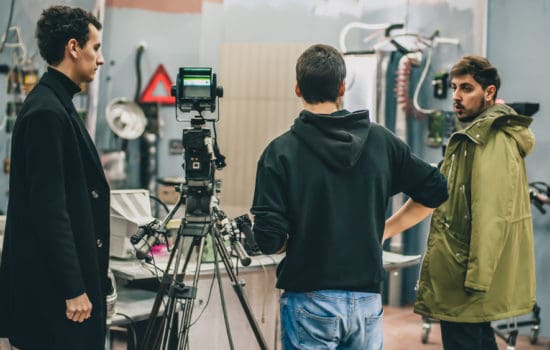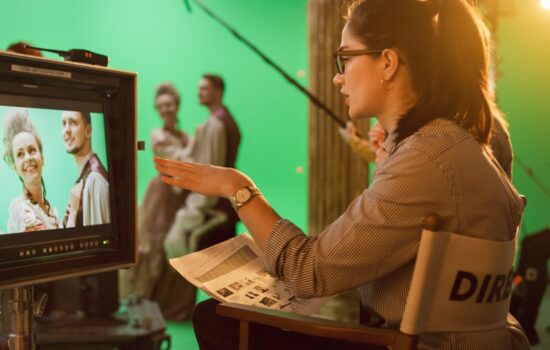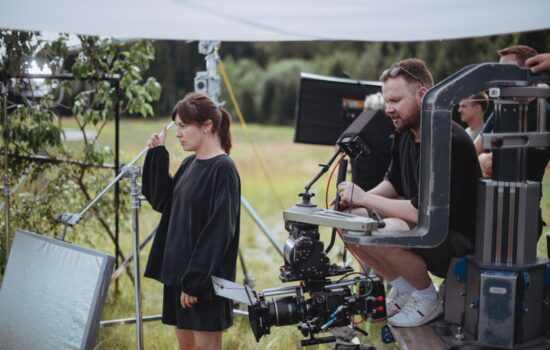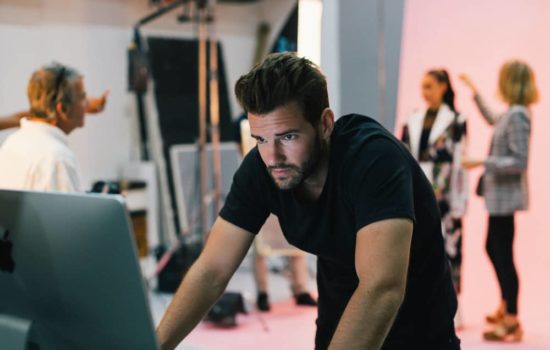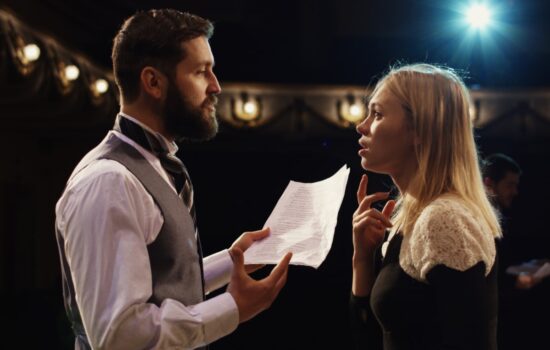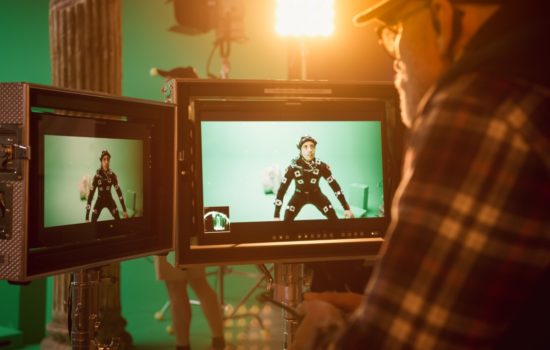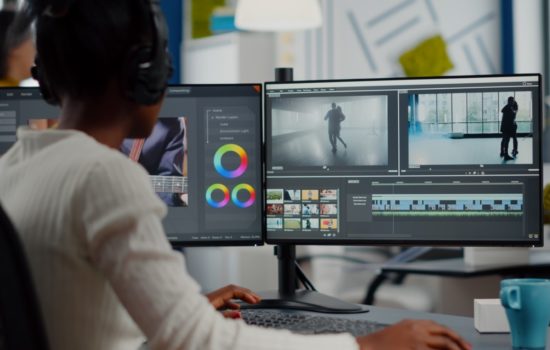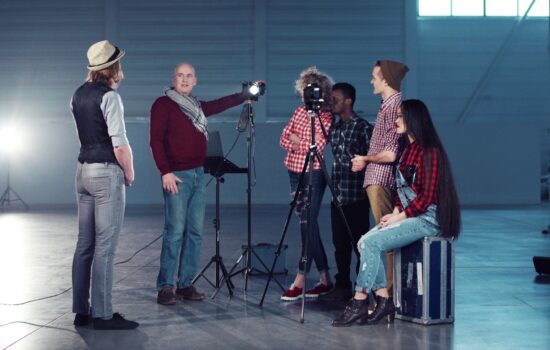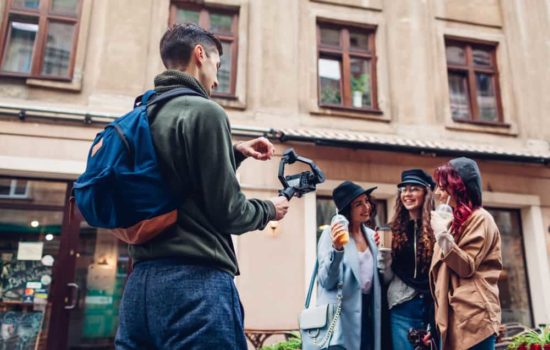Drone Operator
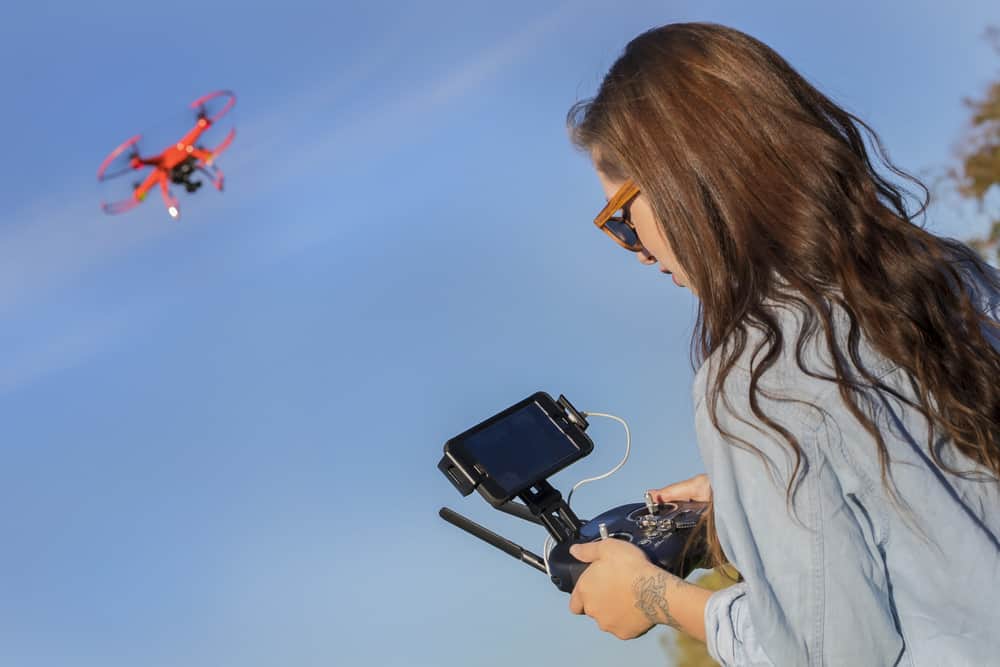
How To Become a Drone Operator
People also ask
Career Description
A Drone Operator works to remotely pilot aircraft. The Pilot of a drone may be located offsite from the drone itself. In fact, they can be located anywhere in the world. A “cockpit” for a drone is completely virtual. The aircraft itself is operated through joysticks, screens, and data links. Using a drone on a film or television shoot can get you incredible shots much more cheaply and safely than using a crane or helicopter.
Drone Zone gives an excellent breakdown on the basic parts and operating system of the drone: A typical unmanned aircraft is made of light composite materials to reduce weight and increase maneuverability. This composite material strength allows drones to cruise at extremely high altitudes. Drones are controlled by remote ground control systems (GSC) and also referred to as a ground cockpit.
An unmanned aerial vehicle system has two parts: the drone itself and the control system. The nose of the unmanned aerial vehicle is where all the sensors and navigational systems are present. The rest of the body is full of drone technology systems since there is no space required to accommodate humans.
Daniel Zagayer, who describes himself as “a hopeless romantic about filmmaking,” is a self-taught Drone Operator who has now piloted drones throughout the world. What Zagayer loves most about being a Drone Operator is that he can capture and see places the naked eye cannot see, hopefully inspiring others to explore the world as well.
Zagayer says working day-to-day as Drone Operator is “kind of like playing with toys for big kids. There hasn’t been a place in the world where people don’t know what a drone is. People are impressed and excited to see them fly. I love everything about it.”
Zagayer states his days are quite different based on where he might be during a production, or if he is hustling to try to secure his next job.
“It’s a lot of touching base with Producers and clients or DITs about where they want a drone and looking to see what restrictions there are from an FAA standpoint. You have to take into consideration your location. What will crowds be like, what challenges will buildings present to you? It’s a lot of pre-planning like any production shoot.”
Zagayer stresses you always need to scout and before your shoot to help formulate that ultimate shooting plan: “show up with equipment and survey where the Producers want the shot. The challenge is always finding a good place where you can see the drone but not be seen by the drone.”
Zagayer also states when you aren’t on a shoot you will need to invest time in securing your next shoot. That might mean Producer reach outs, checking in with friends and colleagues for possible upcoming drone needs, and just putting yourself out there to land that next job.
Salary
The average annual salary for Drone Operators is approximately $58,000. The salary range for Drone Operators runs from $39,000 to $92,000.
Drone operation is a world where size matters. “In general, the bigger the drone and the bigger the camera the more money you will be making,” confirms Zagayer. “As far as billing, a company will book you for three to four hours, and the job can range from $200 to $3,000 to $4,000, again depending on a variety of factors. If you are flying like an Alexa on a giant drone this will be on the higher end.
“Jobs are typically two to four hours. You price yourself at a day rate and how long you will be on set. There are a lot of regulations that come with flying, and you have to budget for that as well. There are several different licenses to fly over people, or traffic, or within regulated airspace.”
“[When] getting your license you are taking a similar test that a Pilot would take to get their basic Pilot’s license, so you are learning a ton about airspace and aeronautics, which is really necessary to keep up with all the regulations.”
How much do Drone Operators make a year?
According to ZipRecruiter, a Drone Operator can make an average of just over $57,000 in a year. This figure can change, though, with any number of factors. Experience, the volume of jobs booked in a given year, and the amount allotted to the Drone Operator’s salary for those jobs can all affect their annual take-home.
Hey, what do you think about trying our new Film Career HelperFilm Career Helper really quick? It’s totally free and could help get your career moving fast! Give it a try. It’s totally free and you have nothing to lose.
Career Outlook
Travel and flexibility come with the work-life of a Drone Operator and Zagayer loves that: “I work for the Travel Channel and Discovery Channel, so a lot of the work that I do involves going to different countries or locations around the world and basically trying to capture the most beautiful landscapes that I can in the most cinematic way.”
“A few tips to help everything go smoothly: make sure you always maintain and charge your batteries, and make sure your equipment is functional and clean, and working properly. When you aren’t traveling make sure you are doing your research and networking, and reaching out to people who might need drone services. Also, like anything else these days, build out your Instagram. Post your drone work on there. It’s a great way to get work.”
What is the difference between a Drone Pilot and a Drone Operator?
A Drone Operator has registered permission for their drone to be used during a production. A Drone Pilot is the actual person manipulating the movements of a drone. A Drone Operator can also be the Drone Pilot.
Career Path
Training and gear are the two biggest keys to advancement. Zagayer says, “Start by getting a drone that can shoot 4k. You can go out and get your FAA license. You will specifically need an FAA Part 107 License. There are tons of courses and YouTube videos and user manuals that you can study. It took me four or five days studying and going over practice tests on my own to feel ready to take the test.
“Then you can book your test through testing services. If you pass, you are now licensed to fly. That’s a huge step forward into becoming a professional Drone Operator. It was about $120 to take the test.”
The FAA offers lots of resources, including free booklets for study and a price breakdown of additional licenses you may need for other shoots here.
Zagayer confirms as many entertainment professionals do, that his work is a wide variety of freelance, shows, and more: “I do a mix of network and reality shows. Discovery and Travel Channel keep me busy, but I also do real estate marketing, and real estate property videos. I even shoot billboards to give big companies a view of how their product looks.
“It’s awesome to show a big billboard’s full look on Sunset Blvd. or another amazing landmark over the city. Getting an aerial view of that — it can be a really special marketing video for a company. I’ve also found drone work is pretty year-round minus winter holidays, which is nice. People need drone shots all the time.”
Daniel Zagayer got his start completely as a self-taught and self-promoted Drone Operator.
He offers some final pearls of wisdom for all looking to go down a similar path:
- Buy a cheap starter drone on Amazon and fly it until you don’t crash anymore.
- Study and get your FAA license.
- Start an Instagram account featuring your drone photos.
- Network with Producers and others who may need your skills.
Experience & Skills
Drone Operating is a dream job for those who like to play.
Zagayer enthuses, “that if you love video games you will love Drone Operating, and will probably be pretty good at it. Having that good eye-hand coordination, and knowing you have to be patient and methodical with how you do it really helps. If you don’t think through your moves carefully, and how you will fly you will likely crash, so patience and playing some video games in your downtime can really hone those skills.”
Zagayer says there is a large investment on behalf of a production company when deciding to get those drone shots, so you have to be good at instilling confidence in people. “Having your drone operation license is absolutely key. It’s also a good idea to double-check everything before you shoot. Check your shot plan. Re-check the location for obstacles. All of this helps to put your Producer at ease.”
“Additionally you should be flexible,” states Zagayer. Production is always fluid so you have to know how to roll with the punches. “A lot of people don’t know what they want, and you have to adapt to the location, and the sun, and what physical obstructions might be. So yes, above all else, flexibility and learning how to be reassuring to put people at ease will serve you well.”
How hard is it to become a Drone Operator?
Because a Drone Operator must be registered, there are several qualifications they must first pass. First, they must be 16 years old or older. Second, they must successfully complete the FAA’s exam on unmanned aircraft. Beyond those needs, a Drone Operator must also gain real-world experience and professional connections to have a career in filmmaking.
Education & Training
Learning by doing is the way to go when it comes to Drone Operating. Zagayer says the best way to get started is to buy a cheap starter drone. Smaller drones are available on Amazon for $40 to $80. Zagayer recommends not going more expensive for your first drone because as you are learning you will indeed crash.
Zagayer also recommends committing to teaching yourself instead of investing in a drone school. It really can be a self-taught art: “Just get ready to crash and crash and crash until you don’t crash so much,” he admits. Zagayer also recommends following YouTube tutorials when you are first starting out: “They are an excellent resource.”
Additional Resources
“Now is an excellent time to become a Drone Operator,” says Zagayer. “The Local 600 which is the Cinematographer’s Union (that also governs Drops Ops) is in current need of more Drone Ops for the union. This might give you an easier time joining the Local 600 as a Drone Op as opposed to a Camera Op or DP would.”
As far as online communities go, check out the UAV — it is a good community to follow and get involved with. They also have lots of resources for training.”
FAQ
What is the single biggest suggestion you would give to someone wanting to get into this career?
“Again, I would say buy a super cheap starter drone and fly. Learn how to fly really well. Once you can afford it, get yourself a DJI drone or Phantom. Take the test to get your FAA license, and then start shooting drone videos and post them on Instagram and social media to begin marketing yourself as a licensed operator.”
What’s the #1 mistake people make when trying to get into this career?
“Not having a spare drone with you when you go on a remote job. You have to be prepared that you might crash, no matter how good you are. If you are gonna be a professional, it’s good to have a back-up so you can keep shooting.”
What is the question people should ask about this career but rarely do?
“I think that having your license and getting your license should not be overlooked. You have to go through the steps, get the right training, and take the test. It’s not as hard as you would imagine it to be, but it’s absolutely necessary.”
If you could describe in one word what makes you successful, what would it be?
“Reliability — I always get the shot, and I always show up on time. Friendliness helps too.”
Sources
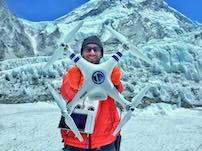
Daniel Zagayer
Hopelessly romantic about filmmaking since age 12, Daniel Zagayer has been directing, editing, and producing videos with a simple goal in mind, to captivate the viewer. A graduate of the USC School of Cinematic Arts (2012), Daniel has produced short comedy films that use a unique blend of humor and cinematic storytelling. He has produced exclusive content for Funny or Die and Yahoo in addition to directing numerous award-winning short films made in conjunction with his hometown compadres’ comedy sketch group, the L.A.W.V.Chillers.
Daniel’s passion for travel and photography led him to work with major TV networks the Discovery Channel and the Travel Channel, filming in over 40 countries around the globe, from locations ranging from the bright, neon-lit streets of Tokyo to the far reaches of the Amazon jungle.
References
- 1. "Drone Operator Salaries in United States". Glassdoor.com. published: December 14, 2019. retrieved on:
